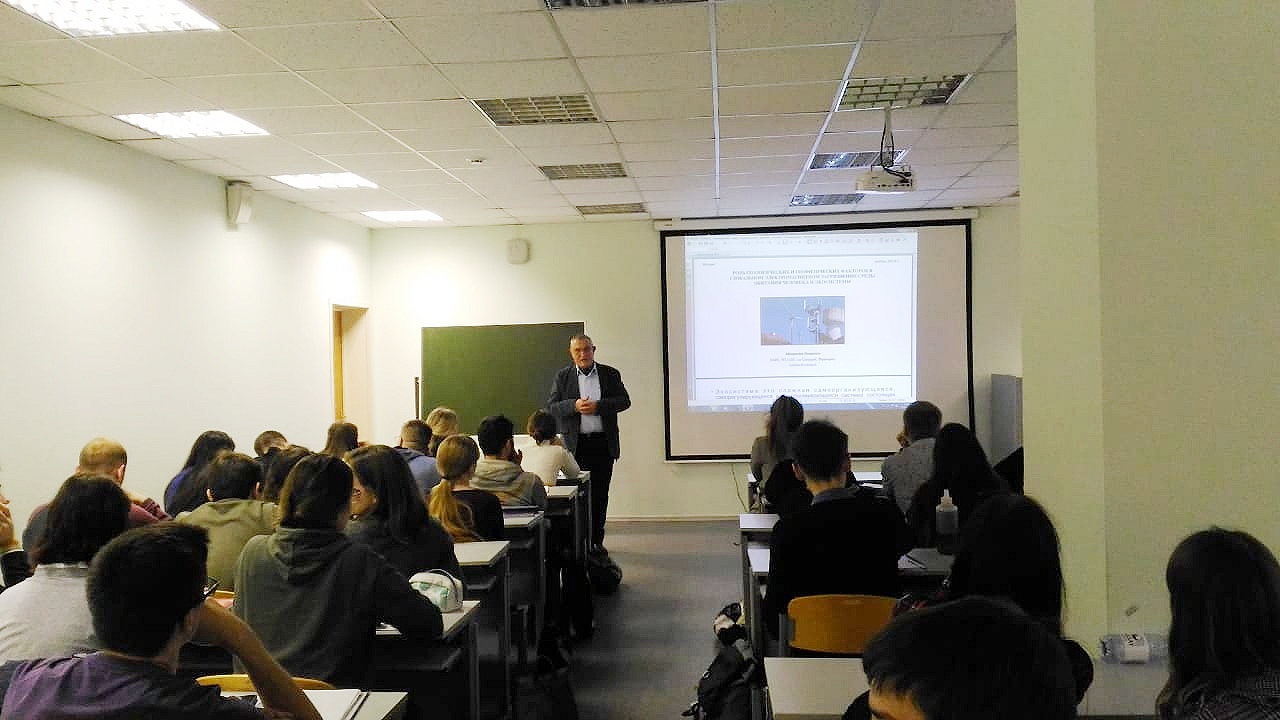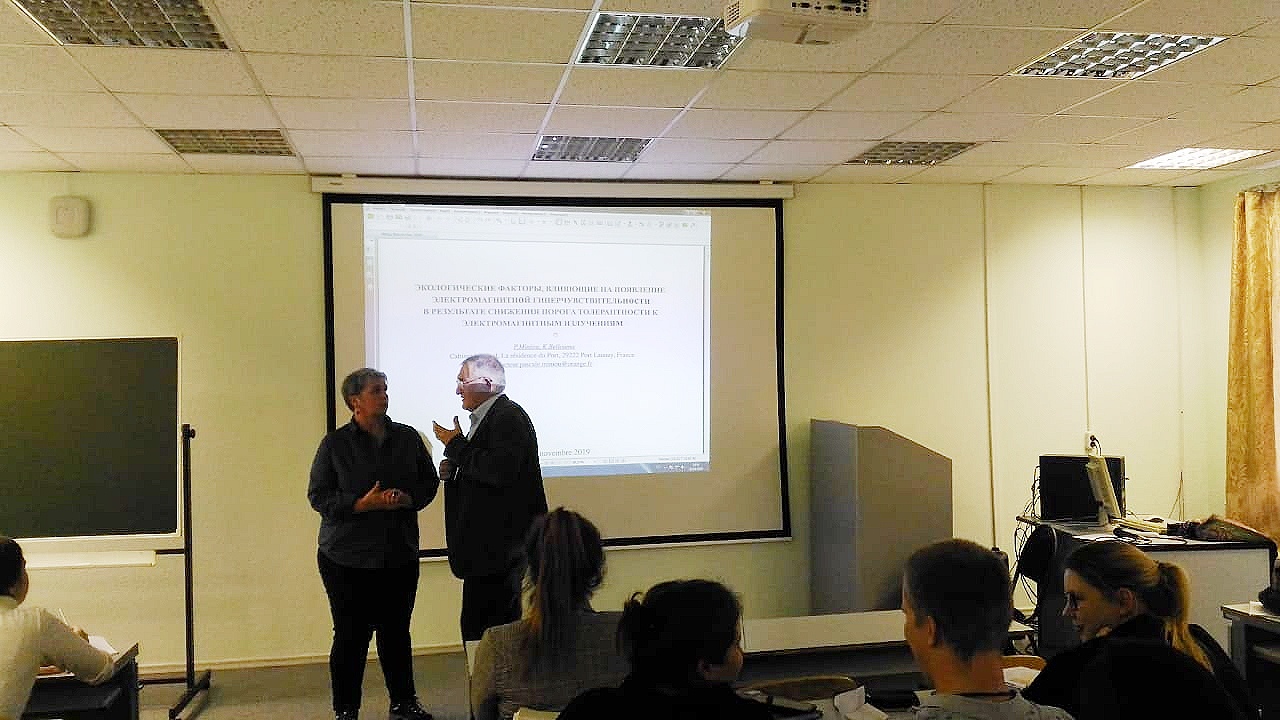Hazardous radiation from “safe” devices: scientists talk about factors that enhance human exposure
November 12, at the Faculty of Ecology, a lecture was given by Alexander Rusanov, graduate of the Faculty of Engineering at RUDN University (1979), and Dr. Pascal Minho, specializing in environmental medicine. They spoke about the effects of non-ionizing radiation on the body. These are primarily electromagnetic waves, including super-weak ones coming from computers, mobile phones, wind generators, solar panels and other devices that have entered our lives. Currently, it is believed that the level of electromagnetic radiation from them is low and does not pose a health hazard if the rules of use are observed. But, as Dr. Minho said, adverse environmental conditions can provoke hypersensitivity to electromagnetic waves, so using a regular mobile phone is dangerous.
Alexander Rusanov claims that geological conditions also influence sensitivity to electromagnetic radiation - for example, being in a geological fault, which is confirmed by the large number of data from livestock farms in Europe, where he conducts research. Moreover, “when the anthropogenic load on the Earth exceeds the possibilities of regeneration, changes in the physical, chemical and other properties of the territories occur. Therefore, the installation of mobile communications base stations grounding, wind generators, solar systems that generate electricity in fault zones can cause new, previously unknown non-electromagnetic radiation spreading along fault zones over long distances."
Products derived from microalgae represent a cutting-edge development in the field of bioeconomy. The potential of this biological resource was discussed at the international research seminar “Foundations for a Green Sustainable Energy”, part of the BRICS Network University’s thematic group on “Energy”. The event was organized by the Institute of Ecology at RUDN University.
Ambassadors of Russian education and science met at a conference in RUDN University to discuss how they can increase the visibility of Russian universities and research organizations in the world, and attract more international students in Russia.
The international scientific seminar hosted by RUDN Institute of Ecology “Experience of participation in student organizations as a way to form career skills” united scholarship recipients of the International Student Mobility Awards 2024 and Open Doors, along with members of the scientific student society “GreenLab” and the professional student association “Kostyor (Bonfire)” shared their projects focused on environmental protection.

